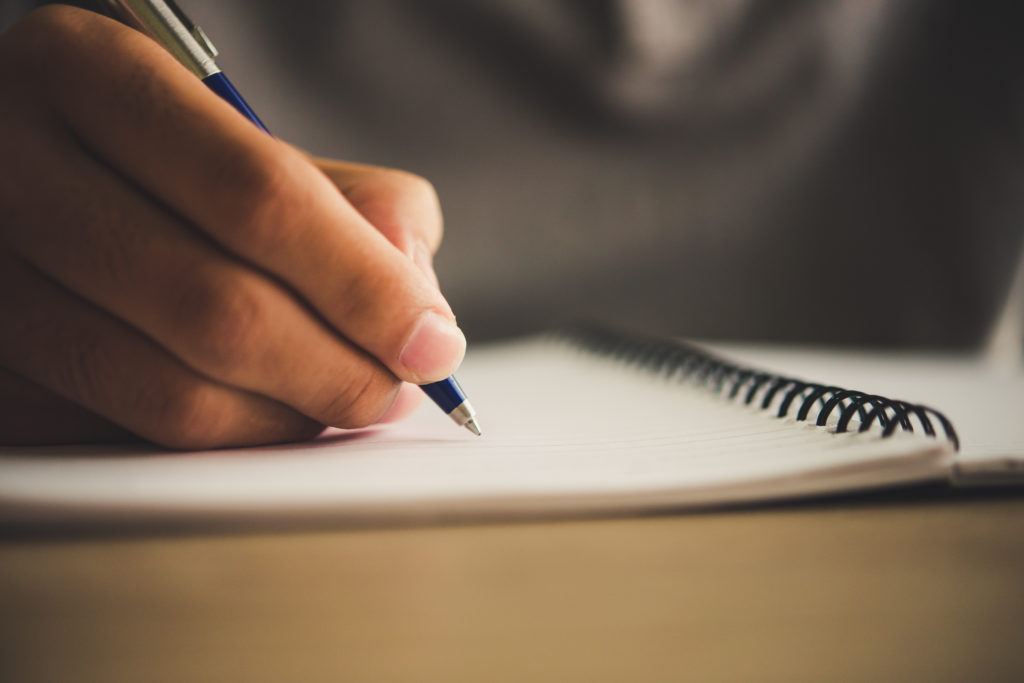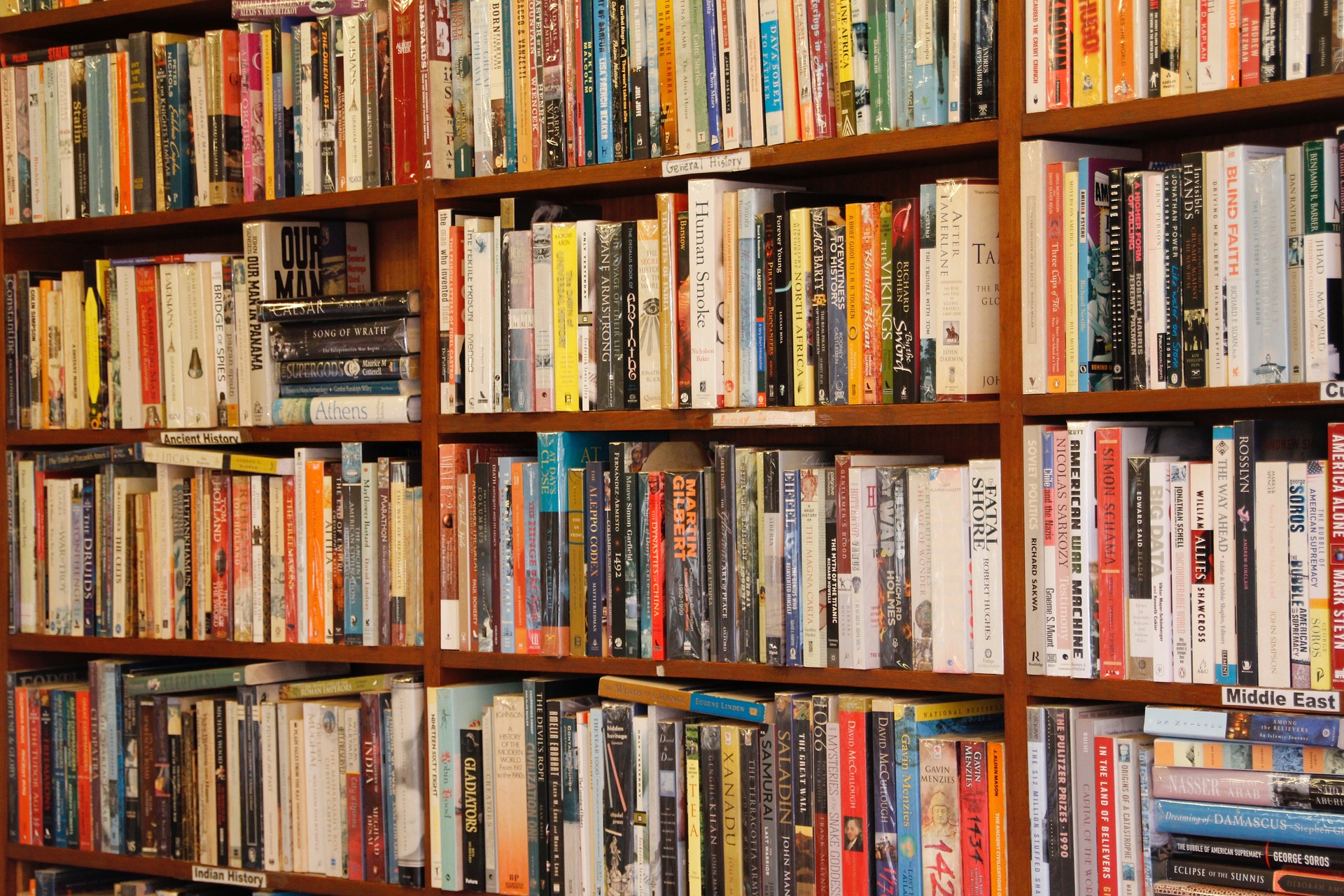Throughout history, writers and other artists have envisioned angels and muses as embodiments of inspiration who bestow upon us the moments of clarity and imagination from which our poems have crystallized. In Greek mythology, the god Apollo was recognized as the God of poetry and music. In Norse mythology, Bragi fills this role. Aengus is the Irish god of poetry to whom William Butler Yeats devotes his poem “The Song of Wandering Aengus.”
If you had a very specific type of poem you wished to write, you could call upon the Nine Greek Muses for inspiration: Calliope for epic poetry, Clio for history, Erato for music, and so on. In his 1933 essay “Theory and Function of the Duende,” poet Federico Garcia Lorca articulated the source of poetry as coming not from without, as from angels and muses, but from within—it “has to be roused in the very cells of the blood.” He called this force duende, “an Andalusian word used to describe the particular quality of deep song,” as editor Michelle Kwansy explains in an introduction to Lorca’s essay, which she included in an anthology of essays on poetry. Throughout the essay, Lorca describes duende as a power, “the spirit of the earth,” as a force that breaks old structures, as “authentic emotion,” and he imagines her, as she is linked so closely with surrealist images, death, and passion, as “dragging her wings of rusty knives along the ground.”
Should you ever call out to one of these gods and receive no answer or struggle to tap into duende, however, here are nine alternative muses who have been known to grant poems:

1. Journaling
For many of us, a poem starts with an idea, a memory, a sound, an image. Or it starts when we finally take a pen to paper or sit at our computers and begin to type. A poem begins way before composing that first line. As we move through our days, our minds sort through experiences, sensations, feelings, images, and ideas and then files them in memory. And as time passes, we forget many of the memories we hold onto in the short term. Something we experience today and remember tomorrow may be lost in a year. This forgetting is one of the many reasons writers keep journals—to take notes, pay attention and observe, collect images, sounds, ideas, and experiences as they happen before they are stowed away in the basement of our brains.
Keeping a journal works to encourage poems in mainly two ways. First, journaling provides us time to practice writing and to play with words, while at the same time uncovering potential material for poems. The poet William Wordsworth famously defined poetry as “a spontaneous overflow of feelings” recollected in tranquility. Keeping a journal encourages time for the second half of this equation. When we make time to sit with and explore our thoughts and feelings in writing, we edge closer to those memories created during intense moments of experience. The practice, I might even say learned skill, of making time to write can sometimes be the hardest obstacle to overcome in our daily lives of work, school, and family responsibilities. Keeping a journal produces a routine that becomes easier to keep the more we do it, and it gives us a way to uncover material to write about.

2. Collecting
A journal can be very useful in helping us to collect material for when we are ready to write. But collecting does not only come in the form of prose writing. Remember, the brain works in fragmented and non-sensible ways. Memories are subjective and often unreliable. In our contemporary technological world of multi-tasking, our attention spans have been shortened. Sometimes, in order to maintain a writing lifestyle, it is more practical to work in bursts. And this is where we can remain attentive and we can, like fishing, catch moments—images, ideas, phrases—that we come across and write them down. Keeping a “collection notebook” helps us to remember the gems of images and sounds that spark poetry before we forget them. When you hear, see, or think something that sings, write it down.
Many writers keep notebooks or scraps of paper on their night tables, in their cars, in pockets and purses. As long as you have a pen and some form of paper—or a phone or other device on which you can take or record notes– you are equipped and can consider yourself to be a writer in the act of hunting. Then, when you sit down to write, you will not start from nothing; you can flip through what you’ve collected and build from there.
In whatever you use to keep take notes, jot down musical or odd phrases or pieces of conversation you overhear throughout your day. Write down a new word you learn in biology class, or a funny sentence out of context you overhear while waiting in line at a coffee shop. Write down a phrase you like from a poem or a story you read (and a note about where it is from, in case you need to acknowledge it later), or capture an image you see while you’re driving or on a walk: a bird’s shattered blue egg, the greasy fingerprints of a child in a display window, a squirrel towing an apple down a neighbor’s porch stairs. If you think of a strong memory, write it down: a hawk that screamed then dove into a river for a fish, the first time you met your significant other.
Mine the world for language and images. When you write, pull out your collection and begin a poem from one of the phrases or images, or insert one into a revision.

3. Reading
For many, the act of writing is wed to the act of reading. Reading poetry re-patterns the rhythms in my mind and refocuses my attention on the craft of poetry. There are poets I turn to again and again, but I also read literary journals, magazines, new books of poetry, and essays on craft—anything to engage me in the contemplation of writing or inspire me to write.
We build upon the achievements of our predecessors, and when you write poetry, you write on the shoulders of such poets as Walt Whitman, Emily Dickinson, Langston Hughes, and Shakespeare, and you add pages to our Big Book. You, of course, will not necessarily enjoy all the poets you read, or agree with their writing philosophies, but it certainly helps you as a writer to be aware of them and to consider them. It helps you to learn to know your poetic self.
Begin to assemble your own anthology of poems that interest you. Either poems you enjoy or ones that puzzle you. Anything that stimulates your capacity to think, feel, or inspires you to write. You may include poems you do not like, too—it all adds up to your own poetic persona. How can you tell someone who you are as a poet and imaginative individual by simply allowing them to read your anthology? What poems will you pick to represent you?
When you read in this way, you are “reading like a writer.” What does it mean to read like a writer? Well, for starters, it means you are actively reading, paying close attention to the decisions the poet made when composing and revising the poem as though you yourself were the poet who wrote it. You consider the choices made concerning line, tone, image, diction, metaphor, form. You ask questions about its composition:
- Why did the poet choose this word instead of another synonym?
- Why is this written in quatrains instead of couplets?
- Why choose to end on an image rather than a statement?
- Why choose to write this in third person rather than first person?
- What does this title do for the reader’s experience of the poem?
Of course, reading need not be limited to poetry or literature. In fact, it should not be. When we write poetry we don’t write about poetry (usually). We write from experiences either real or imagined and, therefore, reading books of all kinds benefits you by expanding the possibility of the experience and knowledge you bring to a poem. Personally, in addition to poetry and novels, I read newspapers, The New Yorker, National Geographic, books about gardening, non-fiction books about many, many things—insects, salt, American history, mythology, physics, anthropology, crop circles, cephalopods. These feed my writing by providing me with new images, words, ideas, metaphors. Knowledge and experiences are the imaginative fuel on which our poems’ engines run.
4. Freewriting
In Peter Elbow’s classic text on creative writing, Writing Without Teachers, the first chapter opens with an explanation of freewriting. What is freewriting? It is as it sounds. It is writing for a certain amount of time without stopping—writing down whatever occurs to you without being charged with having to be correct grammatically or syntactically or factually; it is writing with no barriers or taboos: it is free writing. Sometimes it is referred to as “automatic writing,” and it is incredibly helpful for both loosening the imagination, warming up our writing brains, and–as was the case with the Surrealists who loved such activities–capturing what associations our minds are making unconsciously and bringing to light the unknown parts of ourselves.
Freewriting readies us for writing without judgment, for writing without editing ourselves while in the beginning stages in which wild and raw energy, uncovering connections, and taking risks are more important than properly constructing sentences that are clear and cliché-free. Put simply, freewriting is a type of play.

5. Meditating
Although writing results in an external object that can be shared, the formation of it depends and arises from a process that takes the inward life of a writer and delivers it outward. Because writing is an internal, solitary process, sometimes it can be frustrating, such as when you cannot seem to make language capture your exact feelings and thoughts. Your blood pressure rises, your body heats. You lose interest and excitement in your project, and your patience and attention wane. Meditation can help to quiet the mind and give you the tenacity to keep trying.
Meditation can also clear your mind of distractions that may be keeping you from connecting with your poem. Meditation can help you focus and relax so new thoughts come more easily into the mind and the body permits the mind to enter a flow state. Mihaly Csikszentmihalyi writes about this process in his book Creativity: Flow and the Psychology of Discovery and Invention.
In a flow state, time evaporates. You begin to write and everything else falls away. It’s just you and the page. When you stop, it feels like you’re returning from another dimension—and, in some sense, you are. Perhaps some of you have experienced this state as an athlete or performer.
Some days you’re just “in the zone.” You’re focused, measured, energetic, precise. On the field, on the court, on the stage, you are exactly where you are supposed to be, doing exactly what you need to do—and doing it well. Unfortunately, writers do not enter these states 100 percent of the time.
In its simplest form, meditation is focused attention. Conscious movement, conscious stillness.
Here is a link to some basic instructions to get you started: How to Meditate for Beginners.

6. Moving
For some poets, it’s not so much going in that helps them to write; it is going out. Wallace Stevens famously composed poems in his head on his daily two-mile walks to and from work in Hartford, Connecticut, where he was employed at the Hartford Accident and Indemnity Company. He reportedly liked to match the sounds and rhythms in his poems to his steps. Edward Hirsch shared similar feelings in a 2008 Washington Post article. As he sums up, “Poetry is written from the body as well as the mind, and the rhythm and pace of a walk can get you going and keep you grounded.” In addition to keeping words in rhythm with your steps, walking is also useful for observing.

7. Keeping a Writing Routine
Whether you write every day or once a week, only in coffee shops, or always in a quiet room, it can be helpful to you as a writer to have a routine. Like physically training your quadriceps and lungs for a marathon, routine trains us as writers to write well, to be prepared and ready to catch and develop ideas. Routine readies our mind to write.

8. Create a Ritual
Mason Currey’s book Daily Rituals: How Artists Work chronicles the habits of 400 writers and their quirky rituals, many of which include partaking in coffee, tea, sherry, wine, and tobacco. The poet William Heyen lights a candle before he writes. Whatever the ritual, the purpose is to instill a certain mindset that arises from the act. As you may know, many athletes have rituals, too. Boston Red Sox third-basemen Wade Boggs ate chicken before each game. Among his many eccentricities, pitcher Turk Wendell insisted on chewing four pieces of black licorice whenever he started a game. According to David K. Israel, “At the end of each inning, he’d spit them out, return to the dugout, and brush his teeth, but only after taking a flying leap over the baseline.” We need not be that elaborate, but of course, if it works. . .

9. Dream
Whether it’s staring out a window and daydreaming or keeping a dream journal, exploring the strange images in our minds can also inspire writing, especially if you’re an avid dreamer. When we dream, our brains make connections that our conscious minds do not make while we’re awake. And sometimes these connections lead to eureka moments and new discoveries. For example, did you know that all of the following scientific discoveries were made in dreams: the periodic table; evolution by natural selection; and the scientific method? (You can read about these and others at the website Famous Scientists https://www.famousscientists.org/.)
Or did you know that Paul McCartney reportedly composed the melody of “Yesterday” in a dream? According to an article by Jennifer King Lindley, “Stephanie Meyer awoke from sleep with the idea for the Twilight series.”
Suggested Reading
William Stafford. “A Way of Writing”
Richard Hugo “Writing Off the Subject”
Richard Hugo “The Triggering Town”
Walt Whitman “Song of Myself”
Walt Whitman: An American Experience. PBS Documentary.
Museum of Modern Art. Most viewed exhibits.
Matthew Crawford. The World Beyond Your Head: On Becoming an Individual in an Age of Distraction. New York: Farrar, Straus and Giroux, 2015.
Adapted from Naming the Unnameable: An Approach to Poetry for New Generations, 2018, by Michelle Bonczek Evory, used according to creative commons CC BY-NC-SA 4.0.